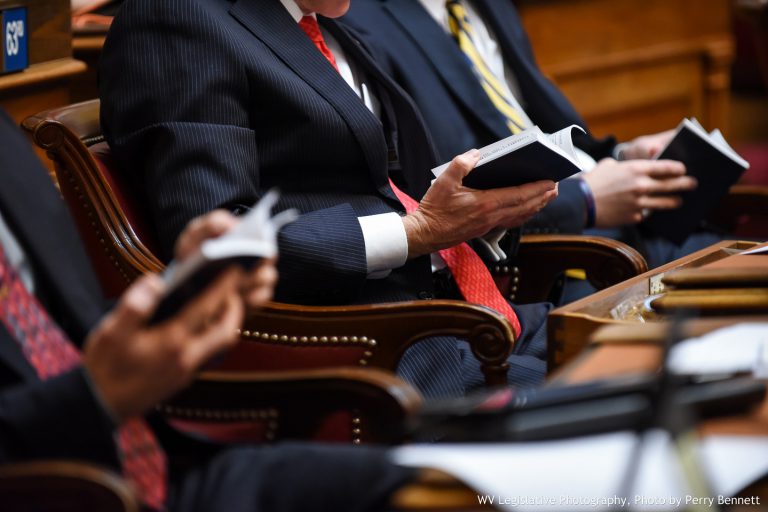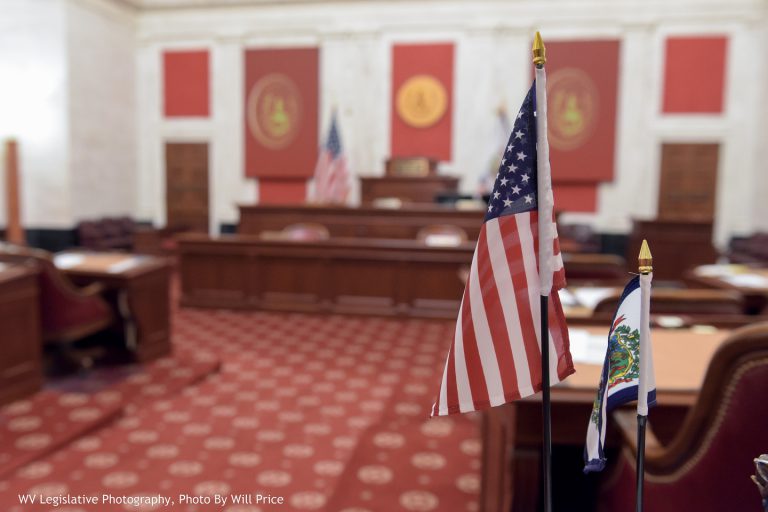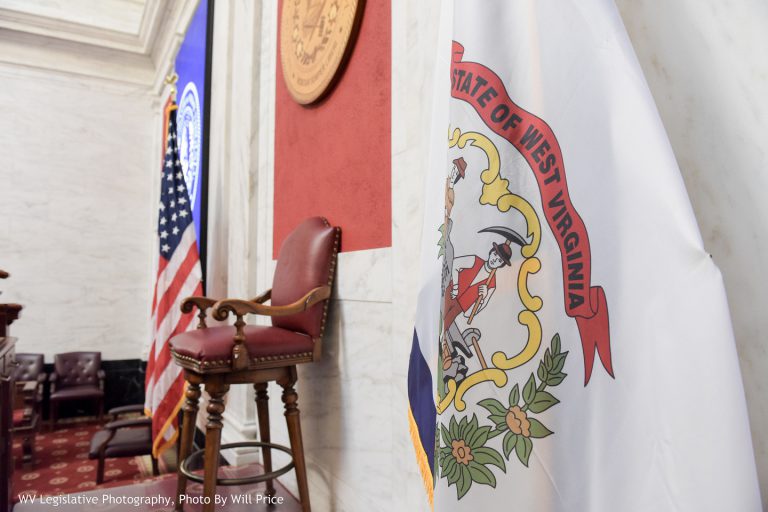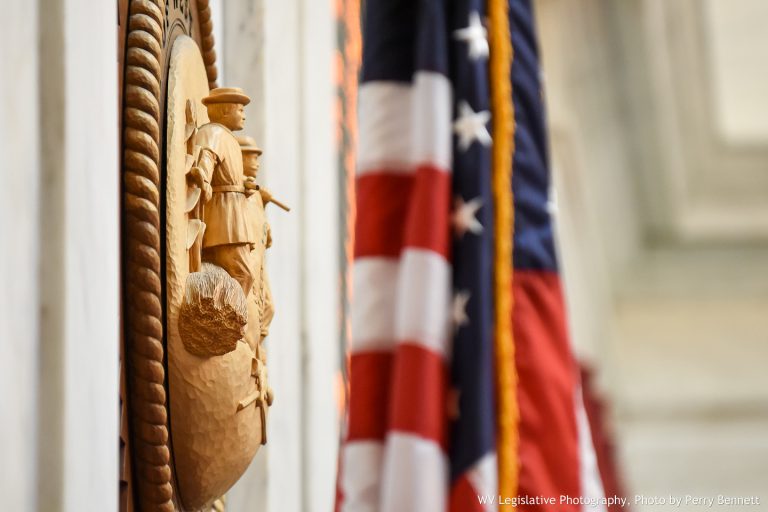
For most of the year, the Statehouse is empty and quiet, footsteps echoing off the marble walls. There are 200 employees who work year round for the West Virginia Legislature, but come January the number doubles. Per diem employees fill half of the jobs needed to make the legislative sessions run smoothly. Some of these employees have developed a passion for the legislative process, making it a memorable part of their year.
One office that consists entirely of per diem employees is the Journal Room. The House and Senate Journal Rooms combined employ 19 people during the busy session in a room filled with wooden cabinets and cubby holes that looks more like a mail room than the heart of bill dispensing. These dedicated workers have come back year after year to do a job they look forward to each January. Even with technology becoming part of the system, the Capitol could not do without these employees to disseminate copies of legislation and information to anyone who desires it.
Some have been working in the Journal Room for decades, but they continue to practice their civic duties because over the years they have become a family and appreciate the knowledge they gain from working at the Capitol. Most of the Journal Room staff is retired and their annual return gives them a chance to meet with their friends for a few months of the year, earn some extra money and share their knowledge with people new to the lawmaking system.
“It’s like coming home to a second family,” one employee commented.

They converge from different parts of the state for a few months out of the year and after the session is adjourned, return home to be homemakers, grandparents and retirees.
According to the per diem staff, their duties are sometimes tedious. However, their responsibilities are crucial to everyone housed in the Capitol.
Every other year, the House has carryover bills that are reintroduced in the next session. The employees arrived a week prior to the start of the session to reprocess carryover bills, 646 this year, and to start renumbering. Thousands of old bills are removed from the bins and recycled after all enrolled bills are taken to the clerks office two weeks after session has adjourned. The Journal Room clerks process all of the new bills, originals and copies of all of them. They also put the House Journals together every day, stock 200 and send the others to Delegates’ mailing lists. Abstracts of introduced bills by number are published daily and then set on tables so the public can keep up-to-date on the actions of the Legislature. The abstracts also make it easier for visitors to know which bills they want pulled.
The Senate bill clerks’ duties include collating the rule making bills and filling the floor books for all 34 Senators each morning. The floor books contain readings, status sheets and bills on the calendar. These books allow the Senators to receive all the information they need on a daily basis.
As the bills change and take on different forms, the Journal Room staff constantly updates the shelves so that the most current versions of the bills are on top. The clerks also are in charge of the lobbyists’ paid boxes and stock them daily with all of the bills introduced that day. The House has 40 boxes to stock and the Senate has 60, with 20 going to committees. The Journal Room sends out thousands of bills and journals to mailing lists each week.
The bill clerks’ mornings in the Journal Room are always busy because the new bills arrive and must be sorted and placed into their own cubby hole, 250 copies of each bill to be exact. Like any other job, it has its spurts of excitement and down time. The final two weeks of session receive the most traffic this office will see because it brings the end of bill introduction. Journal Room clerks must stay a few weeks after session has ended to organize all the enrolled bills and get rid of old bills, but to them, that just means more time to spend working with old friends before it’s all over.
The Senate and House Journal Rooms were at one time separated and located next to their respective chambers. The rooms were much smaller, making it more difficult to stay organized. The introduced bills were in tall metal cabinets that could only be accessed by one person at a time by ladder. Other bills had to be stored in a closet with dividers, and when someone needed to find a bill they would have to crawl on the floor to retrieve the bill. Now it is much more automated and efficient for the journal clerks to find what they need. With more space in a larger room that combines House and Senate bills, the staff has a better system to store and number the bills without having to dig through the stacks.
Many people come to the Journal Room before they go anywhere else to collect bills, but the number has dropped since the bills have become available on the Legislature’s Web site.
Computers also have allowed bill drafters to work at a quicker pace. Changes in bills become easier and the new versions reach the journal room in a more timely manner. While computers have made the search for bills much easier and convenient, some believe there is no substitute for hard copies.
A portion of the population does not have access to the Internet and many citizens rely on having a bill in hand while visiting their lawmakers. The Journal Room acts as a depot for lobbyists, citizens and lawmakers to obtain hard copies of these valuable informational materials. And, like all Per Diem staff hired during legislative sessions, the Journal Room employees are a crucial piece of the legislative process.










